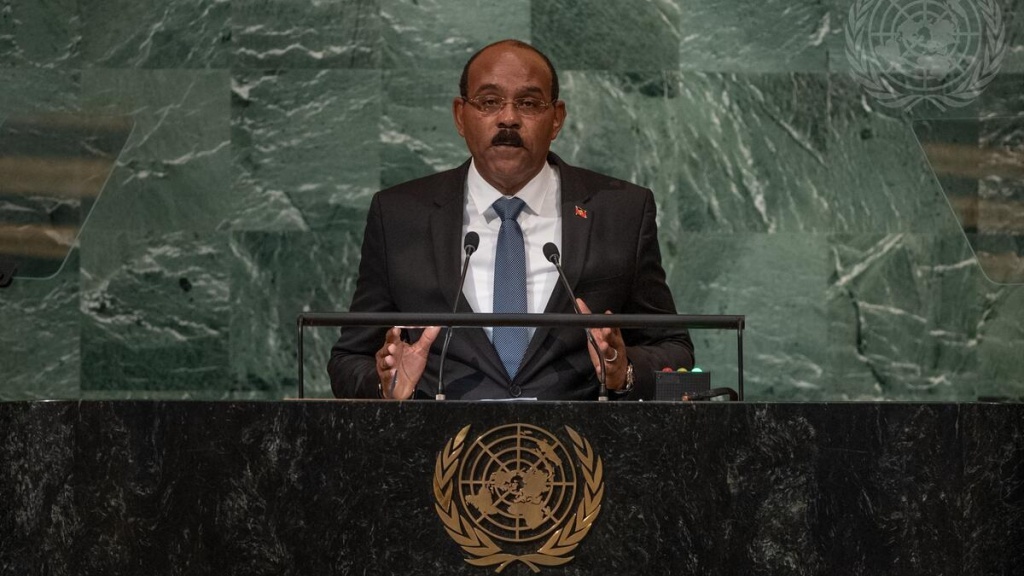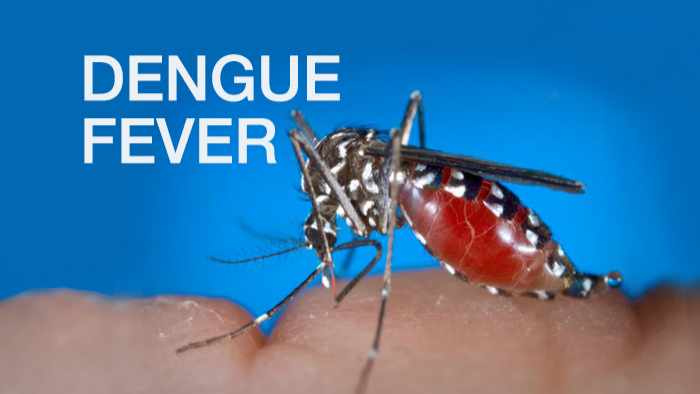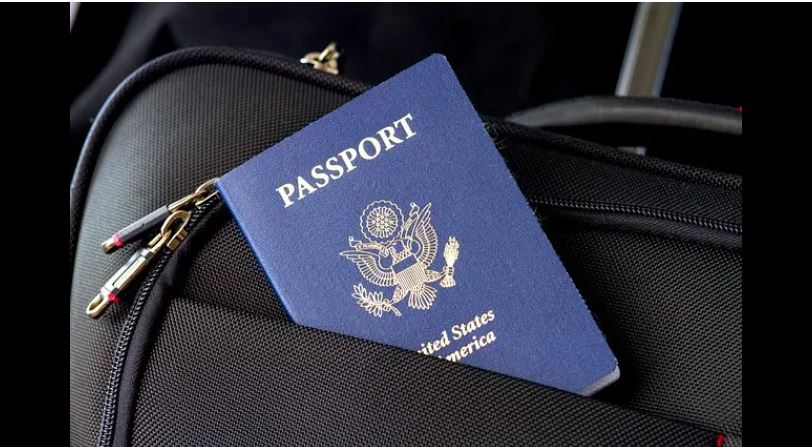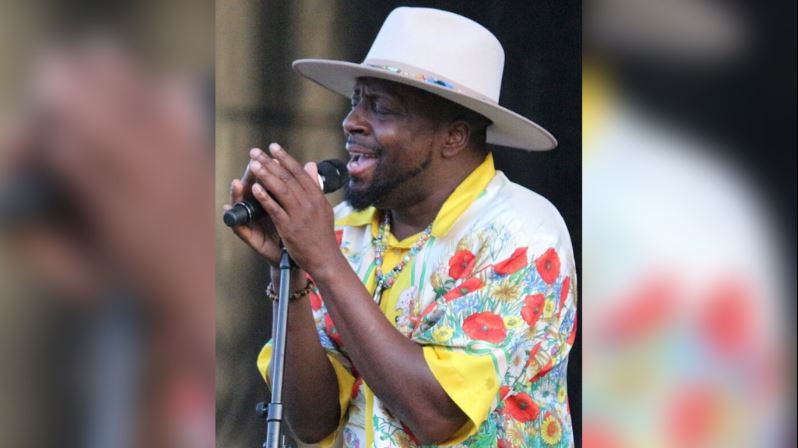Antigua and Barbuda Prime Minister, Gaston Browne, on Friday called on the United Nations Security Council to live up to the ideals for which it had been established as he lamented the myriad of challenges confronting the global community, including climate change and the ongoing war in Ukraine.
Browne, addressing the 77th session of the United Nations General assembly (UNGA) said that nearly eight decades after its formation and a promise of peace and security “our peoples would have been right to expect greater achievement of global peace and prosperous development”.
But he told the international community that this has not happened and instead 77 years have passed with the promise of the leaders of the world’s big powers of saving succeeding generations from the scourge of war and promoting social progress and better standards of life, all but an illusion.
Browne said that the five victorious nations of the Second World War assigned to themselves, permanent membership of the UN Security Council, assuming responsibility to implement the promises of the Charter not only in their own interests, but also on behalf of the many nations, “which did not choose them, and which had no option but to trust them..
“It is a disappointment, that small countries, such as mine, would be less than candid, less than honest, if we did not convey our sentiments to the permanent members of the Security Council. We are obliged to ask: What happened to the commitments, which were chiselled into the UN Charter, as binding obligations on all, but particularly those in the Security Council, who took to themselves the task of guardianship of peace and development?”
Browne said lest the global community has forgotten, he was taking the opportunity to remind of those commitments that included a need to “practice tolerance and live together in peace with one another as good neighbours, and to unite our strength to maintain international peace and security”.
But he said that today “our world is now gripped in a fearful atmosphere of economic and financial instability, and the worry of expanded warfare” with every country being confronted with escalating inflation, food shortages, high prices, and increasing debt.
“There should be no doubt, in this Assembly, that trust in the Security Council has been diminished by the actions taken within its membership,” Browne said, noting that many small “defenceless nations now feel gravely unprotected by the weakening of the international legal order, which was our first, last and only define against aggression”.
He said even worse, the development prospects and the hard work of the small countries to rise up from poverty, are being retarded by the high prices and severe disruptions that began with the coronavirus (COVID-19) pandemic, and that are being exacerbated by the war on Ukraine.
“Therefore…we call on the permanent members of the Security Council to recommit themselves to the role, which they assumed and pledged to safeguard. Peace must be restored for the world’s sake… and soon. It is the Permanent Members of the Security Council – all of them – which have that primary obligation.”
Browne warned that to abandon that obligation in the pursuit of selfish desires, legitimizes the call for reform and an expansion of the Security Council.
He said concerted action by the Security Council is necessary to prevent major human rights violations, stop ongoing breaches and address global conflicts.
“If this fails to happen with the urgency that is required, it may call for the General Assembly to initiate its own global actions, and to authorize their implementation. I do not anticipate that this call for action by the General Assembly would be welcomed by the permanent members of the Security Council.”
The Antigua and Barbuda Prime Minister said climate change is also a major issue confronting the global community , recalling last December, due to a veto cast by one of the five permanent members, the UN Security Council had to reject a draft resolution, framing the problem of climate change as a threat to international peace and security.
“That draft resolution was co-sponsored by one hundred and thirteen member states, representing the second highest number of countries to support a draft resolution in the history of the Security Council,” Browne said, asking whether it is fair that the evidence-based resolution, which emanated from the concerns and anxieties of so large a host of nations, should be vetoed by a single country?
“Climate Change remains the single greatest, common threat to all mankind. More so, for small island developing states (SIDS), which lack the financial resources to adapt to mortal shocks, and to rebuild in their aftermath, “ Browne said, adding that SIDS have a legitimate and urgent concern.
He reminded the international community that collectively, SIDS contribute the least to CO2 emissions – a mere 0.2 per cent – yet they remain the greatest victims, not only because of unattended loss and damage to lives and livelihoods, but also because the very existence of those countries is fatally endangered.
“The effects of global warming are universal; they reach every country. But it is vital that we all understand that, in as much as global warming is universal, its damaging effects are not the same; the burden falls mostly on the poor in small developing nations, such as mine.
“That is why, as the representative of the people of Antigua and Barbuda, I must stand up for their rights; including their right to livelihoods and to life.”
But Browne made it clear that his voice cannot be stilled while danger gathers in the skies above Antigua and Barbuda and that he has no choice but to fight unrelentingly for climate justice.
“Distinguished Colleagues, many are beginning to lose faith in the Security Council. We must not be forced to lose faith also in the collective authority of this UN General Assembly. That is why my government urges this Assembly to act on behalf of the smallest and most powerless among us, and in the interest of global justice.”
Browne urged that the resolution being sought by Vanuatu from the UNGA in the coming months: to request the International Court of Justice (ICJ) to give an advisory opinion that would clarify the legal obligations of states to protect human rights and environments from climate change.
“If our nations are indeed gravely concerned about the ravages of climate change, which has spared no country, they will support the Vanuatu request. Not to support the Vanuatu resolution would be a vote to circumvent a decision on the legal obligations of each nation.
“Not to support Vanuatu would be a vote to prolong this period of abuse, thereby imperilling human civilisation, Browne said, drawing attention to an initiative taken by Antigua and Barbuda, in solidarity with Tuvalu and Palau.
“We are three small island states which have been buffeted and battered by the effects of Climate Change. On the eve of COP 26 in Glasgow last year, we launched, The Commission of Small Island States on Climate Change and international Law (COSIS). The Commission’s purpose is to develop and implement fair and just global environmental norms and practices.”
He said in this connection, it will seek an opinion from the International Tribunal of the Law of the Sea, regarding the binding obligations of its member states, to mitigate the effects of their greenhouse gas emissions, or to pay for the loss and damage they cause.
Browne said that this effort is separate from, but complementary to, the Vanuatu initiative, adding “ our small countries have talked ourselves hoarse since the 1980s, pointing to the parlous circumstances into which our people and our countries are being plunged”.
Like other Caribbean Community (CARICOM) leaders, who have addressed the UNGA, Browne said billions of dollars had been pledged in climate finance and not delivered.
“Promises were repeated, year after year, each with a zealousness that, on the evidence, was meant to placate and divert, but not to perform and deliver, commensurate with the loss suffered and the damage caused.
“The stage now seems set for this year’s COP 27 to fail, despite the genuine efforts of some industrialized nations, to address the grave concerns of the majority of the world’s people to turn climate change into Climate action.”
Browne said that the Group of 20 countries, meeting on August 31, failed to produce a joint statement on climate change, “sending an ominous signal that, yet again, the meeting of the COP in November will be long on words, but very short on deeds”.
He said at the COP-26 meeting in Glasgow last year, world leaders acknowledged that their pledges to reduce global greenhouse gas emissions have not met the previously agreed goal of pursuing efforts to limit warming to 1.5 degrees Celsius.
“They vowed to do better. It appears now, that they will not. And this is despite the fact that, as Secretary-General Guterres observed, we are in a climate emergency that is literally setting our planet on fire.”
He said small states individually and collectively under the Antigua and Barbuda’s chairmanship of AOSIS, will attend COP 27 in Egypt and argue strenuously to establish a new loss and damage response fund.




